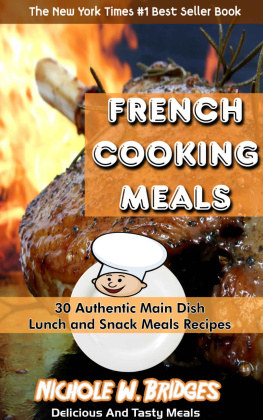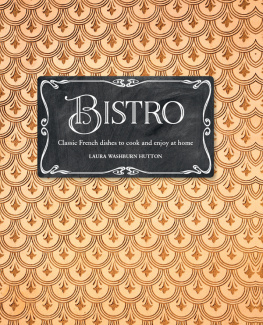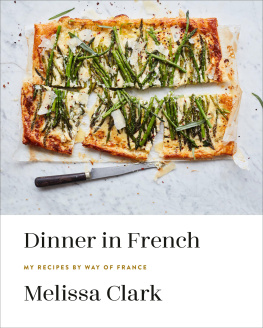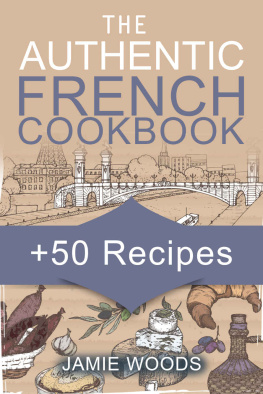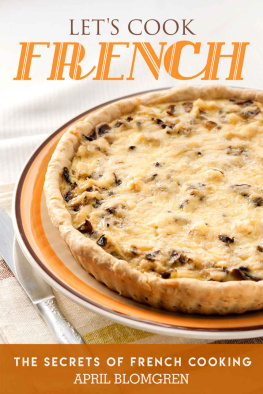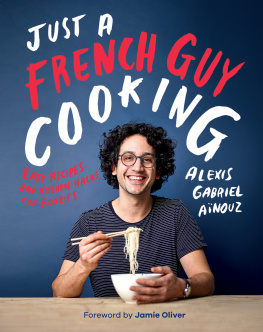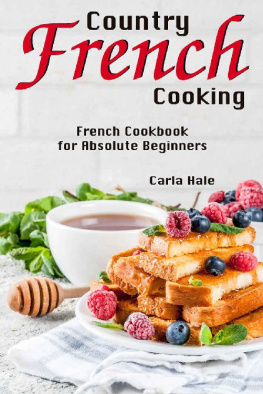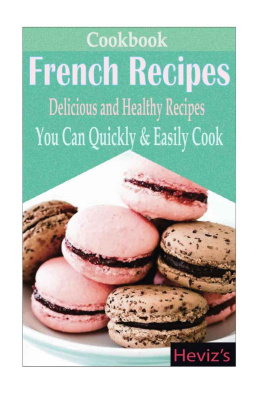

Copyright 2020 by Rockridge Press, Emeryville, California
No part of this publication may be reproduced, stored in a retrieval system, or transmitted in any form or by any means, electronic, mechanical, photocopying, recording, scanning, or otherwise, except as permitted under Sections 107 or 108 of the 1976 United States Copyright Act, without the prior written permission of the Publisher. Requests to the Publisher for permission should be addressed to the Permissions Department, Rockridge Press, 6005 Shellmound Street, Suite 175, Emeryville, CA 94608.
Limit of Liability/Disclaimer of Warranty: The Publisher and the author make no representations or warranties with respect to the accuracy or completeness of the contents of this work and specifically disclaim all warranties, including without limitation warranties of fitness for a particular purpose. No warranty may be created or extended by sales or promotional materials. The advice and strategies contained herein may not be suitable for every situation. This work is sold with the understanding that the Publisher is not engaged in rendering medical, legal, or other professional advice or services. If professional assistance is required, the services of a competent professional person should be sought. Neither the Publisher nor the author shall be liable for damages arising herefrom. The fact that an individual, organization, or website is referred to in this work as a citation and/or potential source of further information does not mean that the author or the Publisher endorses the information the individual, organization, or website may provide or recommendations they/it may make. Further, readers should be aware that websites listed in this work may have changed or disappeared between when this work was written and when it is read.
For general information on our other products and services or to obtain technical support, please contact our Customer Care Department within the United States at (866) 744-2665, or outside the United States at (510) 253-0500.
Rockridge Press publishes its books in a variety of electronic and print formats. Some content that appears in print may not be available in electronic books, and vice versa.
TRADEMARKS: Rockridge Press and the Rockridge Press logo are trademarks or registered trademarks of Callisto Media Inc. and/or its affiliates, in the United States and other countries, and may not be used without written permission. All other trademarks are the property of their respective owners. Rockridge Press is not associated with any product or vendor mentioned in this book.
Interior & Designer: Lisa Schreiber
Art Producer: Michael Hardgrove
Editor: Pam Kingsley
Production Editor: Matthew Burnett
Photography 2020 Marija Vidal. Food styling by Katherine Knowlton.
ISBN: Print 978-1-64611-589-1
eBook 978-1-64611-590-7
R0

To My Dearest Maman Mishou ,
Whose passion for life, food, and wine (though not necessarily in that order) has inspired me my entire life.

CONTENTS



Bonjour!
I came by my reverence and passion for French food very honestly. I grew up the proud son of two immigrant parents whose French culture and joie de vivre helped shape the person that I am today.
My story starts from the very beginningactually, nine months before, when I was still deep within my mothers warm and comfortable womb. My grandfather Pp insisted on feeding my pregnant mother a hearty French diet of foie gras and black truffles to ensure that, despite living thousands of miles from the French motherland, I would grow up to become a proper gourmand.
The gourmandizing extended just past my first minute on planet Earth. Instead of getting the traditional spank and sip of mothers milk to herald my arrival, I was handed a flute of bubbles and, with that, a serious addiction to the good life. Well, however embellished, I did start life with a French palate and a deep taste for truffles.
I grew up in Chicago, living life on the fence between two cultures: French and American. My mother came from a Provenal family whose wide roots extended as far north as Alsace. Her palate was educated by a combination of the simple country cooking that appeared nightly on her fathers dinner table and eating at many of the great brasseries in Paris.
It may be very clich to claim that I learned to cook hanging off my mamans apron strings, but I really did. My mother was a free-spirited natural in the kitchen who cooked like great jazz musicians riff. It was edible poetry in constant motion. She had a bold and fearless style that was inspired by what she found each day at the market.
Often, she strapped me and my sister to her bicycle and rode to the four corners of the universe in search of ingredients. For the French, the act of sourcing fresh ingredients (and getting fresh baguettes) is monumental. It is the key to the success of any dish.
Together, we shopped daily with my mother, who taught us from a very young age how to pick the ripest tomatoes and best eggplants for her ratatouille. Her ambrosial version, best savored with eyes closed, conveyed the rich tapestry of the Provenal table. French home cooking is simple, unpretentious cuisine based on sun-ripened vegetables and fruits, fragrant herbs, abundant seafood, and pasture-raised meats. My mother schooled me on using the cheaper, secondary cuts that still werent popular in America and transforming them into a delectable navarin of lamb or a slow-cooked beef daube.

My mothers food was imbued with a generous helping of love and passion, typical of any French woman. The scenes from my childhood could have very well played out in any French household in the world. While most kids were out playing games with their friends, I was busy mastering a mustard vinaigrette for a simple green salad.
This is how I learned to cook French food, and it is the very aspect I want to share the most.
Remember, first and foremost, that food is a celebration. We celebrate the changing seasons by the dishes we cook; we celebrate the table, our friendships, and the simple joys of life. My goal is to share my passion for Parisian home cooking and how the French like to eat. I will leave you with one last thought: My first mentor taught me that people do not eat methods, they only eat results. Do not get too caught up or stressed about things like whether you use canned chickpeas or the dried ones that need to be soaked all night. The important part is the final flavor and consistency and the conviviality at your home. Love is always the most important ingredient in any recipe.
Next page

